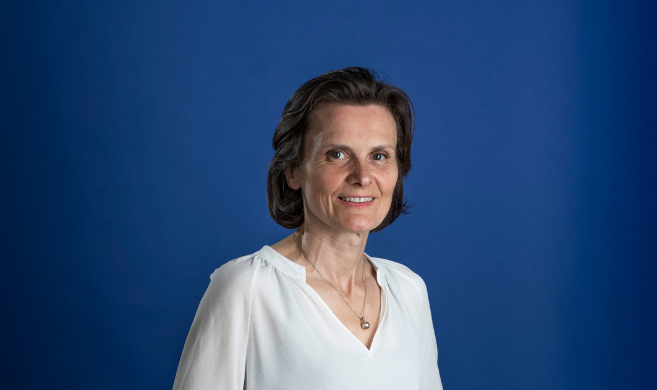Why should business care about social impact?
Climate change is accelerating. We see it every day in the news with intense droughts, storms, heat waves, rising sea levels, melting glaciers… and its consequences on biodiversity. But widening and rising inequalities are a major threat to our society too and hinder the urgent ecological transition.
However, there is growing awareness and increasing pressures on companies to act. These come from multiple directions, including from regulators, financial institutions, the younger generations and consumers. Failing to address social impact will mean failing to attract young people, as well as many other risks.
Climate change is accelerating. But widening and rising inequalities are a major threat to our society too and hinder the urgent ecological transition.
There is an encouraging number of companies and business leaders wanting to be more proactive to have a positive social impact. HEC, through its S&O Inclusive Economy center, is the academic partner of the Business for Inclusive Growth Platform (B4IG), an entity powered by the OECD and comprised of 40 companies of G7 countries fighting against inequalities: advancing human rights and living wages, building inclusive workplaces, and developing inclusion throughout value chains. This kind of coalition is very important because it mobilizes all kinds of stakeholders and accelerates change.
Some companies understand the link between climate change, biodiversity and social inequality, and the systemic risk linked to rising inequalities, including pioneers such as Danone and Schneider Electric who co-created in 2009, with other companies, the Action Tank Social Business, an incubator of social businesses led by big companies together with civil society’s organizations and public actors. But many other companies simply still do not see the business case for change, on the ‘S’ dimension at least.
The impact of the Yellow Vests movement in France is increasing pressure on the French government regarding lower standards of living, highlighting the rising social discontent that is apparent in France and beyond. The idea is that there will be no ecological transition if no social transition happens. And we do believe that business has a role to play in the transition.
In which function of business is it urgent to act?
Nearly all functions are concerned with the social dimension. key functions are probably R&D and marketing, as it starts with the design of the products and services, based on precise life-cycle analysis. Similar to environmental life cycles, social life-cycle analysis should also be developed, leading to new design practices.
Similar to environmental life cycles, social life-cycle analysis should also be developed, leading to new design practices.
Raw metals are materials used to manufacture many different devices, in the digital economy or the ‘green’ business. Their extraction leads to poor working conditions for workers and pollutants impacting the health of employees and the biodiversity. Yet the business community prefers to turn a blind eye because changing requires revolutionizing too many areas.
Companies are required to do more to prove they have no negative impact on the supply chain, and NGOs are challenging situations that contravene human rights. Over time it is becoming increasingly difficult for businesses not to take this seriously, especially as the US and EU have enacted binding legislation. In France, companies must comply with the “Duty of Vigilance” law, a moral duty to respect human rights and minimize adverse environmental impacts.
In supply chains, where social impact can be very detrimental, sustainability is possible but challenging to address.
Accounting and finance are also at the heart of the transition and courses. In Europe, the EU Corporate Sustainability Reporting Directive (CSRD) will require all companies of more than 250 employees to disclose their environmental and social impact at the start of 2024.
Thus, in higher education, finance and accounting disciplines are undergoing a profound transformation, where professors, sometimes challenged by their students, decide to further their course on these new standards. For example, Luc Paugam, HEC Paris Associate Professor of Accounting, recently trained on extra-financial rating at the CFA Institute, will teach the evaluation of companies with regard to ESG criteria in his course on financial reporting.
What indicates that the purpose of an organization - delivering shareholder value - is changing?
The idea articulated by Friedman that maximizing profit for the shareholders is the primary purpose of an organization is progressively losing weight. Pressure from regulators and NGOs is taking hold. Critically, at the end of 2019, the Business Roundtable released an Updated Statement on the Purpose of a Corporation, diverting away from shareholder primacy in the USA. This explicitly outlines responsibilities of companies to customers, employees, suppliers, communities and shareholders. The 181 CEO signatories committed to leading their companies in this way. In parallel, companies in France and other countries are moving towards a regenerative business approach (i.e. quitting extractive business models to find ways to make positive contributions for nature and society), which is encouraging.
HEC Paris also has an important role to play in changing organizational cultures, by training its students to think in more sustainable ways and, moving forward, bring a new mindset into organizations moving forward.
How is the environmental and social transition taught at HEC Paris?
HEC Paris has a responsibility and is committed to integrate the great challenges of the social and ecological transition in all programs. Recently, we developed a compulsory course for all first-year students called ‘The Planetary Challenges.’ The module seeks to enable students to develop critical thinking skills around socio-environmental issues, with a focus on the interlinkages between climate change, natural resources and social inequalities. The aim of the course is to advocate a new way to look at business—within planetary boundaries and taking into account fundamental social needs.
For the executive education programs, we created an online Sustainable Transition Management Executive Certificate three years ago, focused on the mega-challenges, the role of business in society and how it is changing, as well as transforming current practices. Our participants learn how to turn sustainability into opportunities and identify new and innovative sources of competitive advantage and value creation. They understand how each key function of the company such as finance, strategy, marketing, and supply chain, is being impacted by the sustainability approach, and how it can transform itself.
During immersive classes students are required to help social actors solve difficult problems they have, stimulating their imagination to innovate.
Other programs include social impact measurement and an exciting new hybrid certificate on ‘Sustainability Essentials,’ will be available in 2023, in partnership with Stockholm School of Economics. We also co-created the program “Lead Campus, Sustainable Leadership in Africa” training managers and leaders based in Africa on business and sustainability. We lead it in partnership with the French Development Agency (AFD), the University Muhammad VI in Morocco and the University of Cape Town in South Africa.
HEC Paris aims to draw in all students, with different styles of learning, such as immersive field work experiences, theoretical courses, and case studies. Inspiring speakers, social entrepreneurs and intrapreneurs share their experiences, and students are required to help social actors solve problems they have, stimulating their creativity.
Can teaching social impact really change organizational culture?
Changing the mindset of people entering an organization can change its behavior and culture overall, and this can happen very quickly.
There is evidence that internal coalitions of actors, such as the “Collectif des salariés” (collective of employees) in France on climate change have pushed CEOs and committees to move a lot faster. This approach within organizations could have a big effect on accelerating programs that have a social impact.
There is evidence that internal coalitions of actors on climate change within organizations have pushed CEOs and committees to move a lot faster.
Back in the Spring 2022, at graduation ceremonies at AgroparisTech, Polytechnique and HEC, students committed to not working in companies that pollute and destroy the planet. Businesses that will not change will find it more challenging to secure talents, and harder to operate in a world that is starting to leave them behind.
More broadly, enlightened leaders understand that rising inequalities constitute systemic risks.






